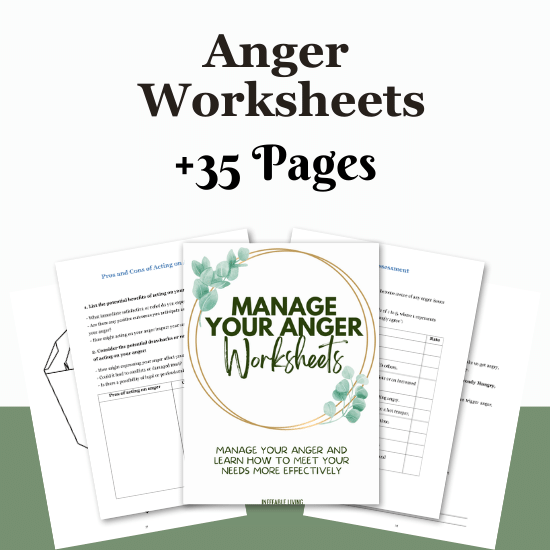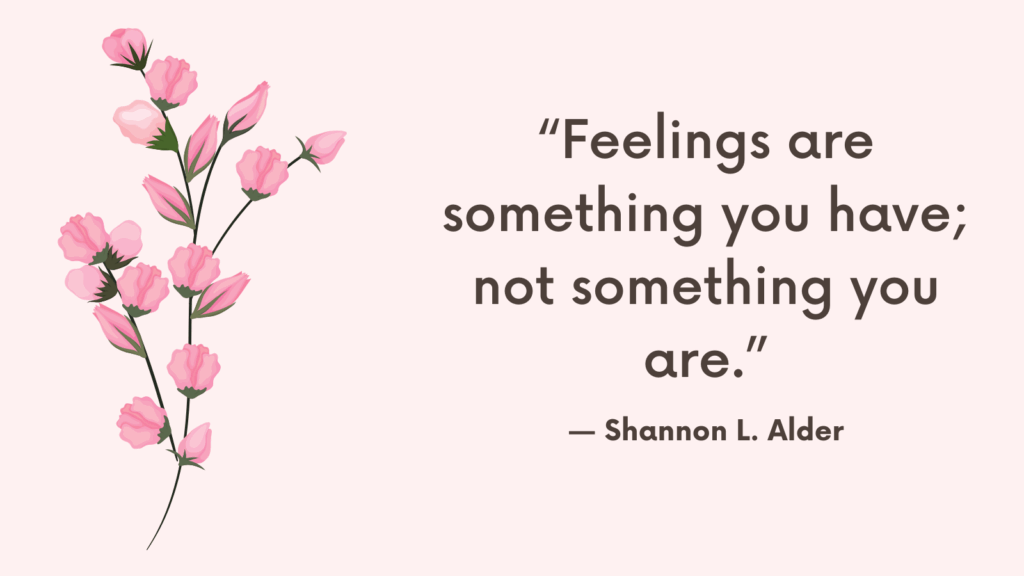Not every situation allows for a direct conversation to process your anger — the other person may be unavailable, unwilling, or it may not be safe or appropriate to confront them. In these moments, you still need ways to cope with anger so it doesn’t take over your mind, body, or relationships. Here’s how to manage it when you can’t talk it out.
Anger: A Misunderstood Emotion
Anger is one of the most misunderstood and stigmatized emotions. Often labeled as “bad” or “dangerous,” it is actually a normal, healthy part of the human experience. Like all emotions, anger serves a purpose — but when misunderstood or mishandled, it can lead to conflict, regret, and emotional harm.
1. Anger Is Not the Enemy
Anger is not inherently negative. It becomes a problem only when expressed destructively or suppressed completely. When recognized and processed properly, anger is a powerful signal that can lead to clarity, boundaries, and growth.
2. Anger Often Masks Deeper Emotions
What appears as anger may actually be sadness, fear, hurt, or shame in disguise. Anger can be a protective emotion that shields vulnerability. Learning to decode what lies beneath your anger brings emotional insight and healing.
Related: Beyond Just Anger: How to Manage Intermittent Explosive Disorder?
3. Society Teaches Us to Suppress It
Many people are taught from a young age to avoid expressing anger. Phrases like “calm down” or “don’t be so angry” discourage healthy emotional expression, leading people to bottle it up — which often results in passive-aggressive behavior or emotional outbursts later on.
4. Suppressed Anger Is Just as Harmful
Unexpressed anger doesn’t disappear; it festers. Suppression can lead to anxiety, depression, chronic resentment, and even physical health issues. It may also leak out in indirect ways, damaging relationships and self-worth.
5. Explosive Anger Isn’t True Expression
On the other hand, uncontrolled rage is not healthy expression — it’s a reaction. Yelling, violence, and blame push people away and cause real harm. True expression of anger is assertive, not aggressive.
6. Healthy Anger Leads to Positive Change
Anger can be a catalyst for transformation. It fuels movements for justice, motivates personal boundaries, and drives necessary conversations. Managed well, anger brings strength, not destruction.
Related: How to Master the Pause Before Reacting?
How to Cope With Anger When You Can’t Talk It Out?
1. Acknowledge the Anger
Start by admitting you’re angry instead of minimizing or denying it. Silencing the emotion only causes it to build up and come out in unhealthy ways later. Saying to yourself, “I feel angry and that’s okay,” creates space for healing.
2. Write It Out
Journaling is a powerful outlet when communication isn’t an option. Write down what happened, how you feel, what you wish you could say, and what outcome you want. Let the emotion pour out unfiltered, then reflect once the intensity subsides.
3. Move Your Body
Anger is stored in the body as tension. Physical movement helps release it safely. Try going for a walk, punching a pillow, doing yoga, or stretching. Channel the energy out instead of holding it in.
4. Use Mindful Distraction
If you’re overwhelmed, shift your focus temporarily. Engage in an absorbing activity like cleaning, drawing, listening to music, or watching something lighthearted. This doesn’t ignore the anger — it creates space between feeling and reacting.
Related: Frustration Intolerance: Understanding It and Building Patience
5. Breathe Through the Intensity
Practice deep breathing to calm your nervous system. Try this: Inhale deeply for 4 seconds, hold for 4, exhale slowly for 6. Repeat until the tension softens. This interrupts the fight-or-flight response and grounds you in the present.
6. Create a Safe Anger Ritual
Establish a personal ritual for when you feel rage but can’t talk. This could include lighting a candle, writing a letter you don’t send, meditating, or squeezing a stress ball. Ritual gives your anger a container so it doesn’t leak into other areas.
7. Practice Visualization
Imagine placing your anger into a box or setting it down beside you for now. Visualize yourself letting it go, even temporarily. You can return to it later when you have more clarity or a chance to process it safely.
8. Talk to Yourself With Compassion
Speak to your anger as if it were a friend in pain. Say things like, “I know you’re angry because something feels unfair,” or “You’re allowed to feel this.” Compassion defuses the urge to lash out.
9. Use Affirmations to Regain Control
Repeat calming truths to yourself:
- “I don’t have to react right now.”
- “This feeling will pass.”
- “I choose peace over control.”
Positive affirmations reinforce emotional strength.
10. Plan for a Healthier Conversation Later
If it becomes safe or appropriate to talk in the future, write down what you want to say. Practice how you’d express your feelings calmly. Planning ahead increases the chances of a constructive conversation later on.
Related: Top 14 CBT Exercise For Anger Management (+FREE Anger Worksheets)

Conclusion
When you can’t talk it out, you can still process anger in a way that protects your peace and honors your emotional truth. Anger doesn’t have to explode or be ignored — it can be held, understood, and released with care.



